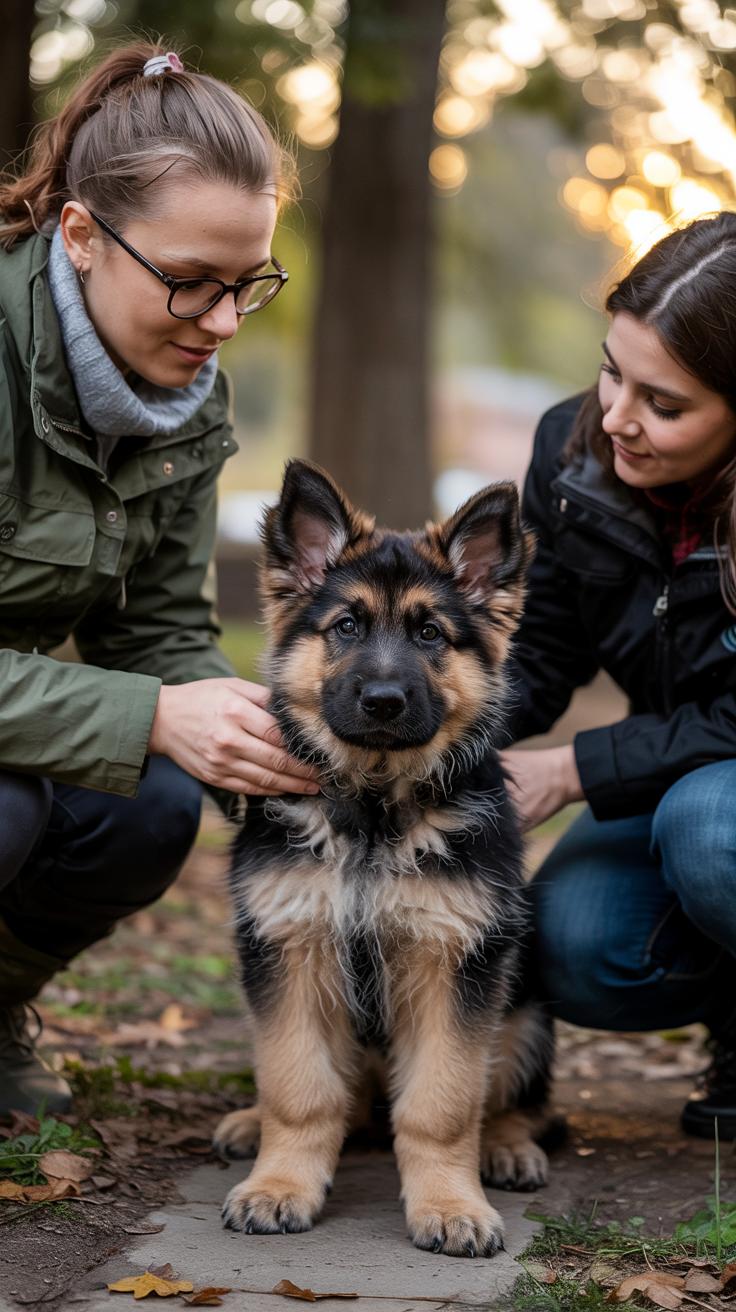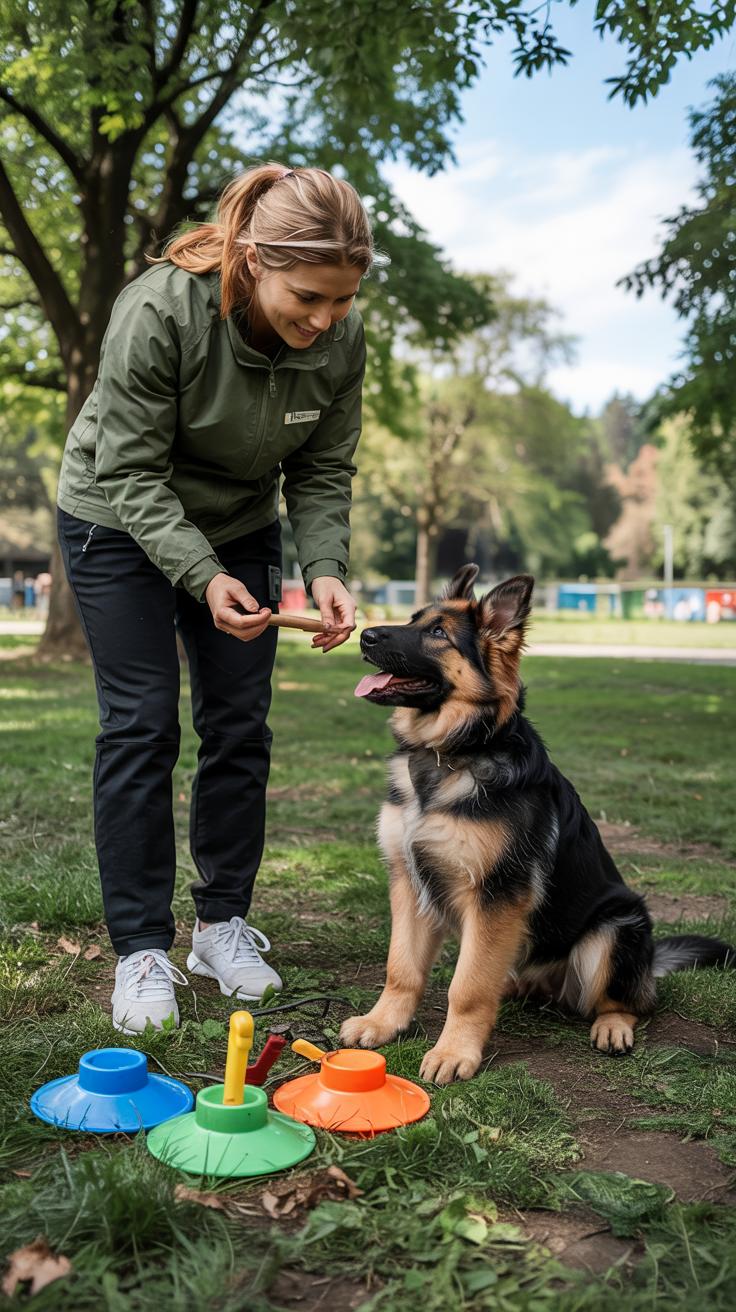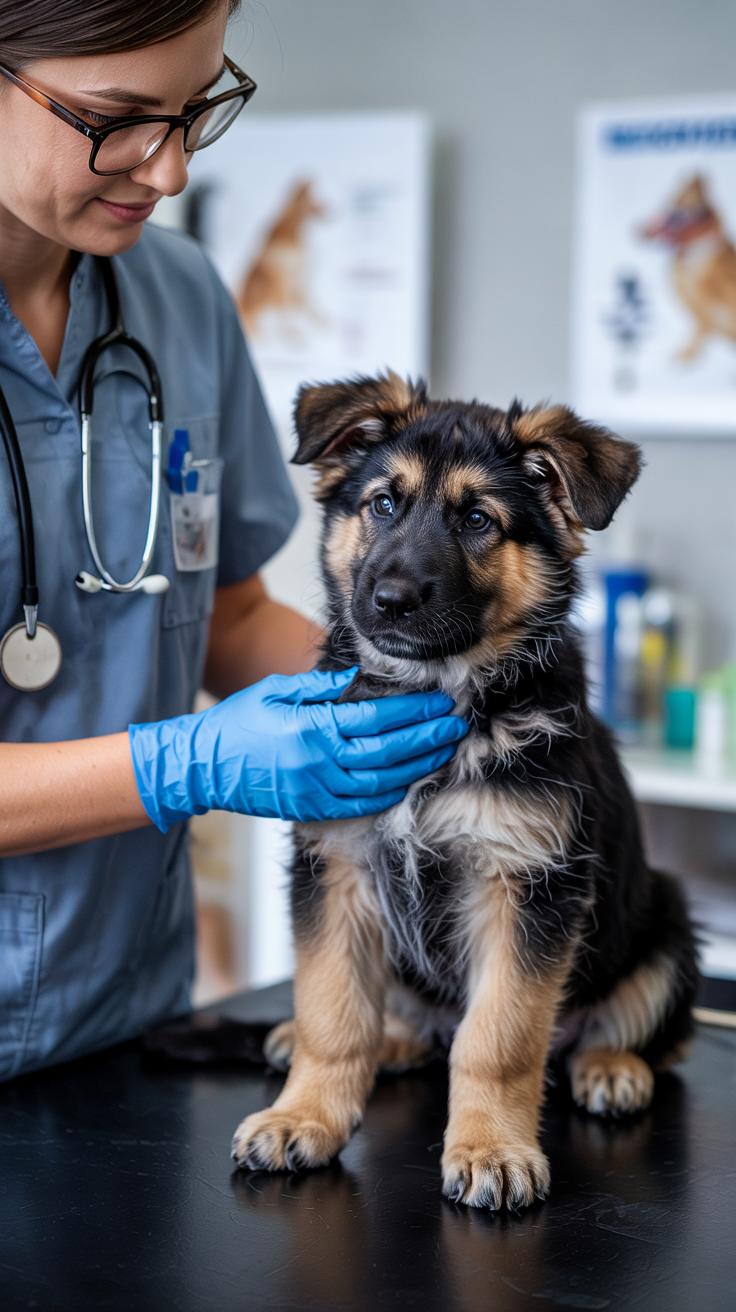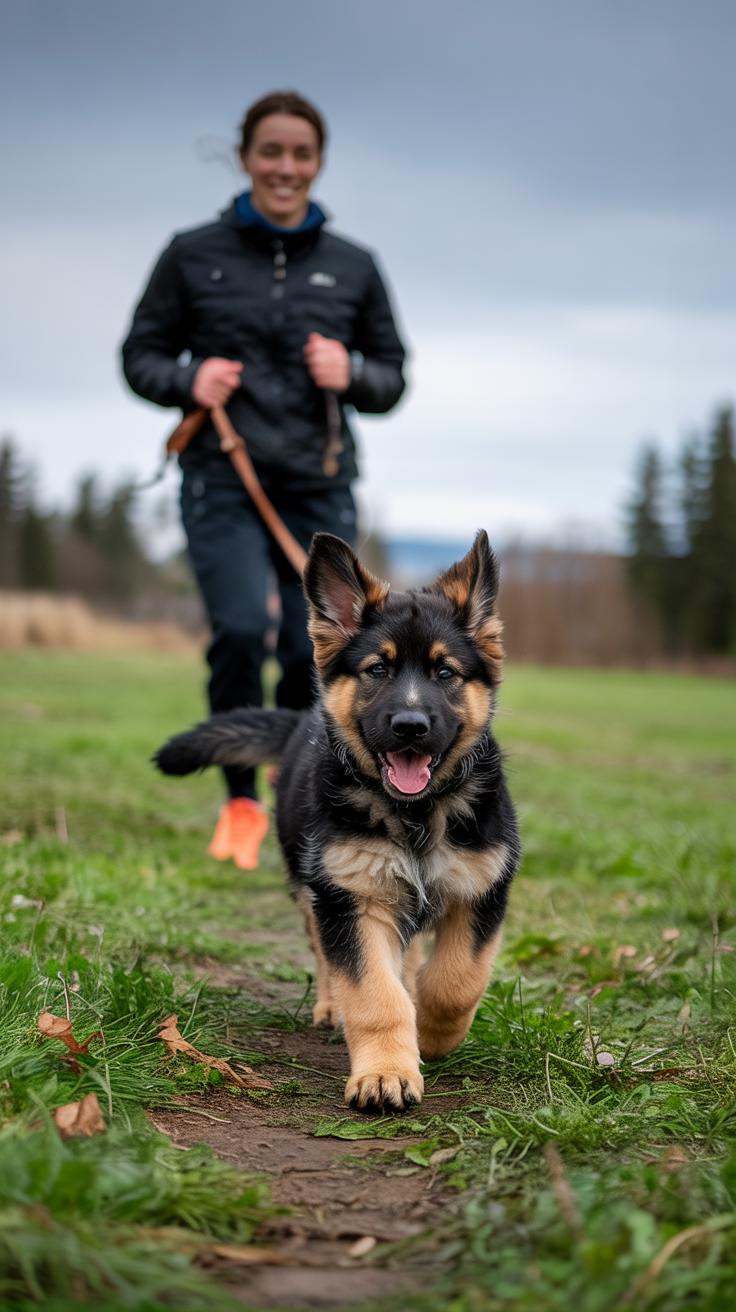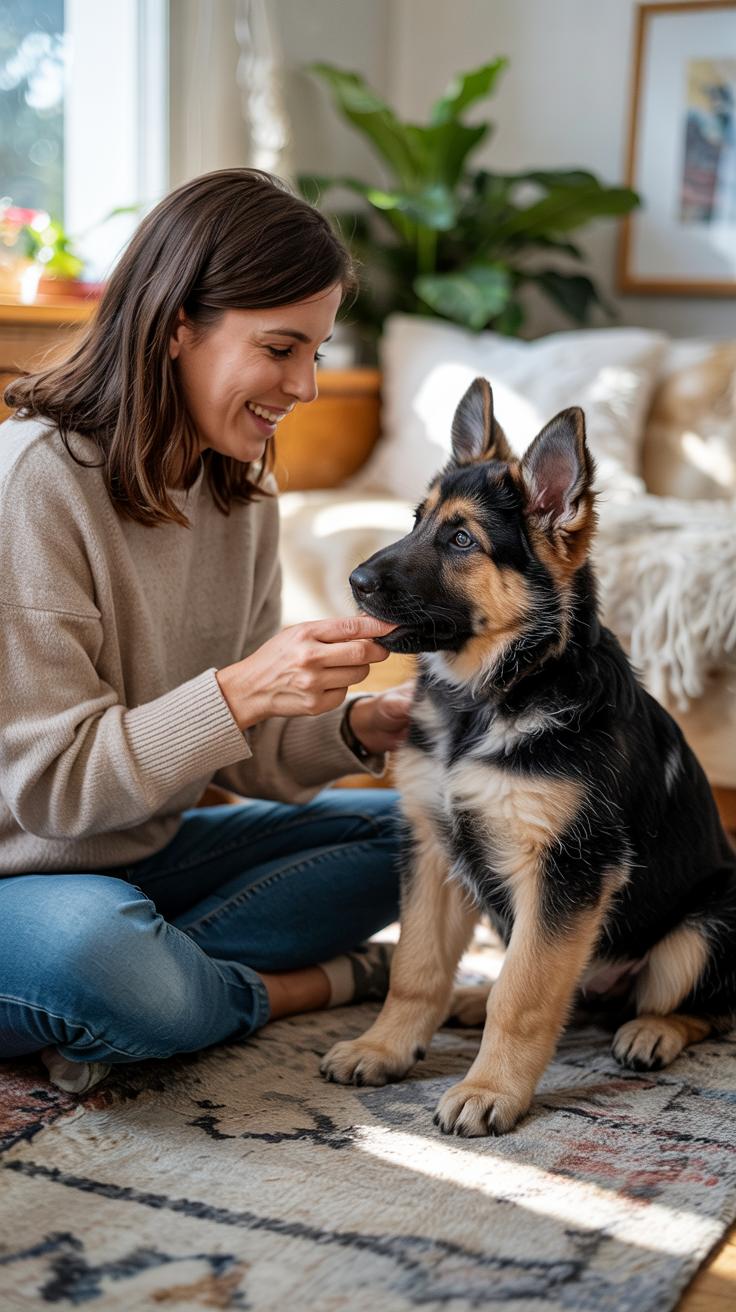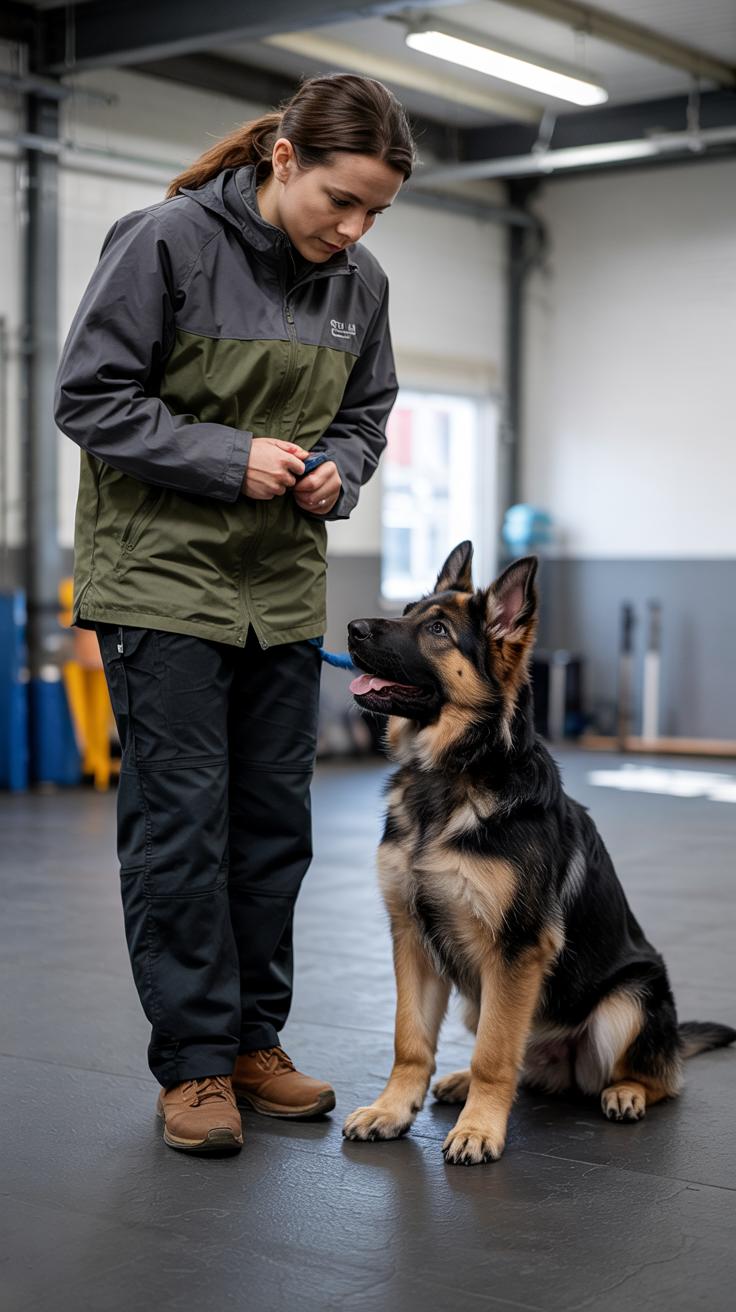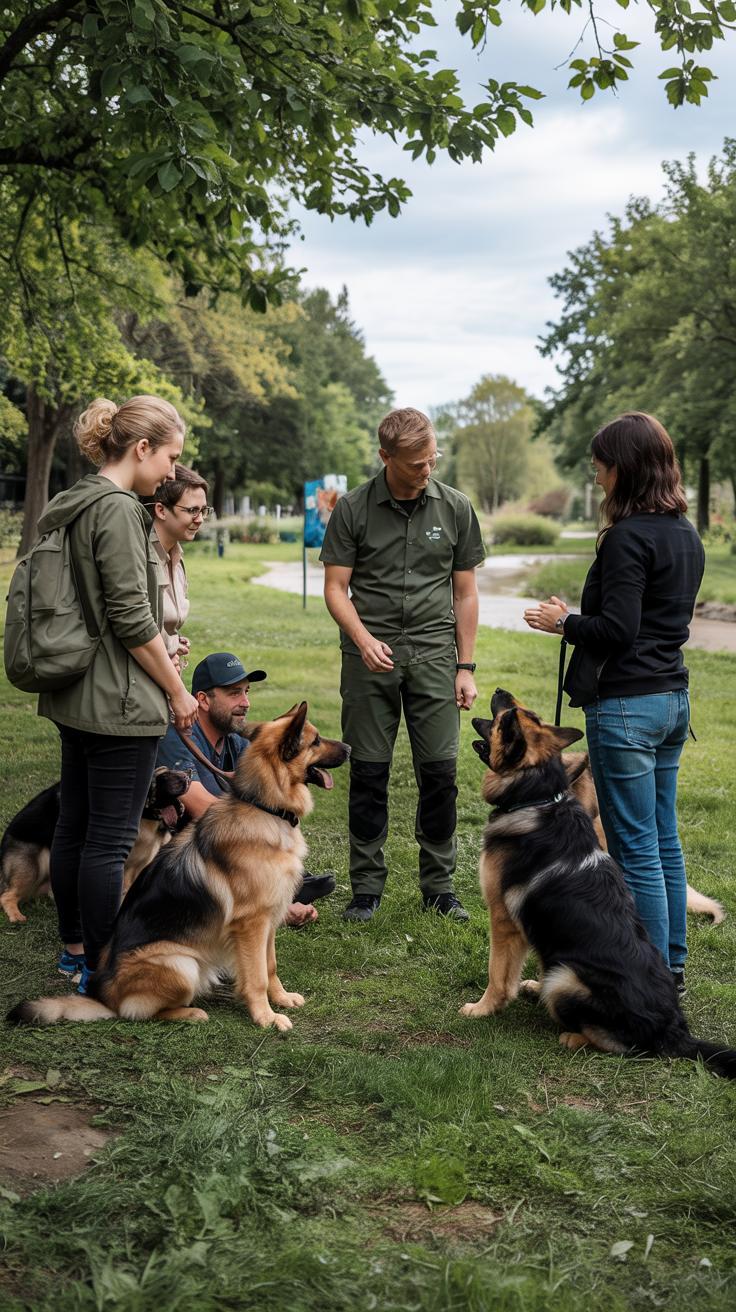Introduction
The German Shepherd puppy, known for its intelligence and loyalty, presents an excellent opportunity for dog lovers seeking a devoted companion. As one of the most popular breeds worldwide, the German Shepherd has a rich history rooted in herding. From its inception in Germany through selective breeding practices, this breed showcases outstanding traits that make it ideal for various roles, including working dogs in search-and-rescue, police work, and cherished family pets. With the right knowledge and skills, prospective owners can ensure their German Shepherd puppies grow into well-adjusted adult dogs, embodying the breed’s best qualities.
Raising a German Shepherd puppy involves understanding their unique characteristics, training needs, and socialization requirements. Furthermore, dedicated owners must provide consistent structure, mental stimulation, and physical activity to nurture their puppies into confident and healthy adults. As we delve deeper into the aspects of caring for a German Shepherd puppy, this article will guide you through essential training techniques, health considerations, and bonding activities that promote excellence in this remarkable breed.
Understanding the German Shepherd Breed Origins and Unique Traits
The German Shepherd breed has a rich history that dates back to the late 19th century. Originally developed in Germany for herding sheep, these dogs quickly gained a reputation for their intelligence, strength, and versatility. The vision of Captain Max von Stephanitz, who sought to create the ideal working dog, led to the establishment of the breed’s foundation. Over time, German Shepherds excelled in various roles, from police and military work to search and rescue operations.
These dogs are characterized by their loyalty, courage, and distinctive physical traits, including a strong, well-proportioned body and keen, intelligent eyes. Their temperament ranges from playful to protective, making them unique as both working dogs and affectionate family pets. Their unwavering loyalty and desire to please their owners ensure they hold a special place in the hearts of many devoted companions.
Evolution from Working Dogs to Family Companions
The transition of German Shepherds from hard-working livestock herders to cherished family members illustrates their adaptability and profound bond with humans. Breeders have significantly influenced their temperament, prioritizing traits conducive to companionship while maintaining the dog’s inherent working capabilities. Today, these dogs thrive in households across the globe as loving companions, demonstrating loyalty and intelligence in equal measure. Their history as diligent workers, combined with their loyalty as family pets, offers a unique perspective on nurturing these amazing creatures, emphasizing the need for devoted owners who understand their needs.
Selecting Your German Shepherd Puppy A Guide for Devoted Owners
When choosing a German Shepherd puppy, attentive observation is essential for ensuring a healthy companion. Start by researching reputable breeders who prioritize the health and temperament of their dogs. A responsible breeder will provide clear health clearances, demonstrating a commitment to the breed’s well-being.
Assess the puppy’s demeanor and behavior. A well-adjusted German Shepherd puppy should exhibit curiosity, playfulness, and sociability, striking a balance between energetic play and calmness when appropriate. Look for signs of good breeding such as clear eyes, a sturdy body structure, and a strong, even gait. Selecting a puppy with positive interactions with littermates and humans will lay a solid foundation for future training and socialization, fostering qualities that align with the German Shepherd’s notable temperament.
Selecting Your German Shepherd Puppy Guiding Towards Excellence
Identifying a Healthy German Shepherd Puppy
Choosing a German Shepherd puppy requires careful consideration to ensure you select a healthy companion. When visiting breeders, look for signs of responsible breeding practices. The living conditions should be clean, well-maintained, and conducive to the puppies’ growth. Examine the puppies for clear eyes, clean ears, and smooth coats, which indicate good health. Active and alert behavior is a positive sign, as lethargy can suggest underlying issues.
Evaluating Temperament for a Loyal Companion
The temperament of a German Shepherd puppy significantly influences its future behavior and compatibility with your family. Observe how littermates interact with each other and their environment. Look for a puppy that is confident but not overly dominant, displaying curiosity and a willingness to engage. A well-balanced temperament often reflects parental influence, so ask about the traits of the puppy’s parents. This attention to temperament will aid in raising a loyal, well-adjusted canine companion.
Creating a PuppyFriendly Home Preparing Your Space for a German Shepherd Puppy
Establishing a Safe Environment
Preparing your home for a German Shepherd puppy necessitates a thoughtful approach to safety and comfort. Start by removing any hazards such as electrical cords, small objects, and toxic plants that could pose a danger. It’s advisable to invest in baby gates to restrict access to stairs or specific rooms, ensuring your puppy’s exploration is both safe and manageable. Consider securing cabinets and drawers, as German Shepherds are naturally curious and may rummage through anything they can access.
Designing a Comfortable Space
Creating a cozy area for your puppy is vital for their emotional well-being. Provide a dedicated sleeping space with a comfortable bed, preferably in a quiet corner of your home. This area should be away from high traffic zones to allow your puppy to rest undisturbed. Make sure to include chew toys and distractions in this space to keep them entertained while you are busy. Incorporating elements like a crate can not only provide a safe haven but also help in house training and establishing boundaries within your home.
Basic Training Techniques Mastering Obedience and Socialization for German Shepherd Puppies
Effective Training Methods for Devoted Owners
Raising a German Shepherd puppy requires an understanding of their unique temperament and intelligence. Utilizing positive reinforcement is one of the most effective training techniques. This involves rewarding your puppy with treats, praise, or playtime when they successfully obey commands. Start with basic commands like “sit,” “stay,” and “come.” Gradually increase the difficulty by introducing distractions. Consistency is key; make sure every family member uses the same commands and rewards to avoid confusing the puppy.
Socialization: A Critical Component
Introducing your German Shepherd puppy to various environments, people, and other animals is essential for their development. Enroll in puppy socialization classes to expose them to different experiences in a controlled setting. This not only enhances their confidence but also helps them learn appropriate behaviors. Aim for early exposure during the puppy’s critical socialization period, typically between 3 to 14 weeks, as this will significantly shape their personality and behavior. A well-socialized puppy grows into a well-adjusted adult dog, forging a loyal and balanced companion.
Nutrition for Growth and Health Dietary Practices for German Shepherd Puppies
Raising a German Shepherd puppy requires dedicated attention to nutrition, which plays a critical role in their growth and health. A high-quality commercial dog food specifically formulated for large breed puppies is generally recommended due to their particular developmental needs. Look for options that list real meat as the primary ingredient, ensuring the essential protein levels necessary for muscle development.
Feeding Schedule and Best Practices
Establishing a consistent feeding schedule helps regulate your puppy’s metabolism and supports healthy habits. Most experts recommend feeding German Shepherd puppies three times a day until they reach six months of age, followed by two meals daily. Be cautious of overfeeding, as excess weight can lead to orthopedic issues. Including supplements like omega fatty acids can also support skin health and coat shine. Monitoring your puppy’s weight regularly will allow you to adjust their intake as they grow into their adult form. A well-balanced diet empowers your puppy to thrive, laying the foundation for a loyal and energetic companion.
Health Considerations and Veterinary Care for German Shepherd Puppies
German Shepherd puppies require vigilant health monitoring to ensure their growth and development. Common health issues in this breed include hip dysplasia, elbow dysplasia, and degenerative myelopathy. Early detection of these conditions is vital, as they can have lasting effects on a puppy’s mobility and overall well-being. Regular veterinary visits play an indispensable role in maintaining a puppy’s health, allowing for vaccinations, parasite control, and comprehensive health check-ups. A trusted veterinarian can also offer personalized advice regarding diet and exercise tailored specifically for German Shepherds.
Establishing a routine for veterinary appointments encourages proactive care. During these visits, owners should communicate any behavioral changes or health concerns that may arise. Close attention to a puppy’s dental health, coat quality, and weight can also provide crucial insights into their overall condition. Prioritizing these aspects not only enhances a puppy’s quality of life but fosters a strong, loyal bond between the dog and owner, setting a foundation for a healthy and happy partnership.
Physical Activity Requirements Ensuring German Shepherd Puppy Excellence
Importance of Regular Exercise for Development
German Shepherd puppies are known for their boundless energy and enthusiasm. Regular physical activity is crucial for this breed, particularly during their formative months. Engaging in daily exercise helps to build muscle strength, enhances coordination, and supports overall growth. Activities such as walks, play sessions, and obedience training not only stimulate their physical capabilities but also promote mental well-being.
Without adequate exercise, these puppies may exhibit behavioral problems, including excessive barking, digging, or chewing. Establishing a structured routine that includes both vigorous aerobic activities and calmer playtime is vital. Aim for at least 30 to 60 minutes of exercise daily, ensuring that the activities are varied and enjoyable to keep them engaged. This dedication to their physical health lays the foundation for a loyal, disciplined companion.
Building a Strong Bond Trust and Interaction with Your German Shepherd Puppy
Creating a solid foundation of trust with your German Shepherd puppy is essential for fostering loyalty and obedience. Engaging in trust-building activities forms the core of this bond. Frequent eye contact during play sessions, for example, not only establishes connection but also reinforces your role as a leader. Establish routines that include daily interactions, which help your puppy understand predictability in its environment.
Trust-Building Activities for Lasting Relationships
Integrating activities like training sessions fosters both mental stimulation and a deep emotional connection. Simple commands and tricks, practiced in a positive manner, promote teamwork and understanding. These moments can be enhanced by using treats, praise, and gentle petting, all of which convey affection and strengthen the bond. When playtime incorporates socialization with other dogs and people, it also nurtures your puppy’s confidence, ensuring they feel secure and connected to their immediate environment and to you.
Dealing With Common Behavioral Issues in German Shepherd Puppies
Understanding and Addressing Behavioral Challenges
German Shepherd puppies may exhibit various behavioral issues as they grow and explore their environment. Common challenges include excessive barking, chewing, and separation anxiety. To tackle excessive barking, owners must identify triggers and address them through consistent training and positive reinforcement. Establishing a calm environment can help minimize unnecessary noise.
Chewing is a normal behavior for growing puppies, but offering appropriate chew toys can redirect their energy and protect household items. For separation anxiety, gradual desensitization techniques can be highly effective. Start with short departures and increase the duration as your puppy becomes more comfortable being alone. By utilizing these strategies, owners can successfully manage behavioral issues while fostering a harmonious relationship with their devoted companion.
Promoting Positive Behaviors Through Training
Training is vital in managing and preventing behavioral problems in German Shepherd puppies. Establishing a routine provides structure, while basic commands like “sit,” “stay,” and “leave it” can address various situations and unwanted behaviors. Regular training sessions, infused with play and rewards, help reinforce desired actions, making for a more obedient canine companion.
Socialization is equally crucial; exposing your puppy to diverse environments, people, and animals helps reduce fear-based behaviors and increases confidence. Regular playdates and trips to puppy classes can facilitate positive interactions. Investing time and patience in training paves the way for a well-adjusted German Shepherd, ultimately leading to a rewarding partnership that enhances both lives.
Continuing Education and Training Elevating German Shepherd Owners
Expanding Knowledge Beyond the Puppy Stage
The responsibility of a German Shepherd owner extends well beyond the initial puppy training phase. Continuing education is vital for fostering a well-adjusted canine companion and enhancing the owner’s understanding of canine behavior. Advanced training classes, obedience workshops, and specialized courses in agility or protection work can significantly benefit both the dog and the owner. Engaging in these activities not only builds upon foundational skills but also helps cement the bond between owner and dog, creating a more harmonious relationship.
Community and Support for Lifelong Learning
Joining local or online training groups allows owners to share experiences and techniques that can enhance the journey of raising a German Shepherd. Participating in community events, dog shows, or training competitions can offer invaluable socialization experiences for the dog while providing an avenue for the owner to gain insight from fellow enthusiasts. Resources such as book clubs focused on canine behavior, seminars led by professionals, or even virtual webinars provide ongoing opportunities for growth in knowledge and skills, ensuring a rewarding partnership with their loyal canine companion.
Conclusions
Bringing a German Shepherd puppy into your home requires not only commitment but a comprehensive understanding of the breed. With an emphasis on training, socialization, and nutrition, owners have the opportunity to cultivate a strong bond with their puppies while ensuring their development into well-rounded adults. The journey may present challenges, but the rewards of raising a German Shepherd puppy are immeasurable when witnessing their loyalty and intelligence flourish.
With responsible ownership and proper guidance, a German Shepherd can become a true family member, bringing joy and protection to your home. This breed not only adapts well to various environments but also thrives when engaged with devoted owners. Embrace the journey and invest in your puppy’s training and well-being, and you will surely experience the excellence that comes with having a German Shepherd in your life.






